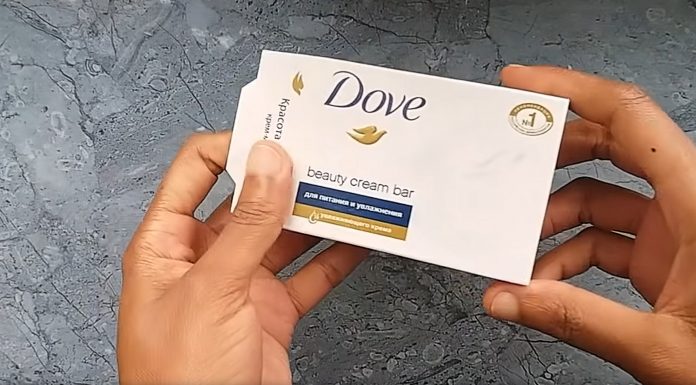The maker of Dove soap and other beauty products said it plans to drop the word normal from its advertising in order to push a “more inclusive definition of beauty.”
Translation: A global mega-corporation that has long used niche marketing to promote unrealistic standards of beauty tooted its own horn over the decision to pitch its products to ugly people.
The ban by London-based Unilever will apply to “body shape, size, proportion and skin colour,” according to the BBC.
“‘Normal’ is such a loaded term because it indicates that there is an ‘abnormal’ and it doesn’t actually describe anything, so it’s about time that the term is dropped,” said Roshida Khanom of the market research firm Mintel.
“Young people in particular are shifting the conversation—the traditional notions of beauty no longer hold up for Generation Z, who see beauty as accepting and owning your imperfections,” she added.
In order to promote “a new era of beauty that’s inclusive, equitable and sustainable” Unilever said it will also stop editing photos of models—a move that not only manipulates cultural norms about beauty but also misleads about the effects of its products.
“We know that removing ‘normal’ from our products and packaging will not fix the problem alone, but it is an important step forward,” said Sunny Jain, Unilever’s president of beauty and personal-care products.
Naturally, its latest public-relations ploy invoked the same racial politics that have been associated with cancel culture in the wake of last year’s US race riots.
Unilever’s announcement comes as many of the consumers who use its beauty products are fixated on palace intrigue involving mixed-race Duchess of Sussex Meghan Markle.
Markle and her fair-skinned husband, Prince Harry, claimed during an “Oprah” interview this week that an anonymous member of the British royal family had speculated over the skin tone of their son, Archie—the great-grandson of Queen Elizabeth.
“The world’s consumer base is becoming increasingly aware of social issues, and the threat of boycotts and backlashes means giants like Unilever are right to try and avoid PR headaches,” said Sophie Lund–Yates, an equity analyst at Hargreaves Lansdown.
The company already appears to have been subject to a social-media pressure campaign led by activists who claimed it promoted negative stereotypes about dark skin-tones.
That backlash prompted Unilever last year to rebrand its “Fair and Lovely” skin cream as “Glow and Lovely,” while adamantly denying that the product was intended for “skin bleaching.”
It also apologized for a 2017 Dove ad that showed a black woman peeling off her skin to become a white woman.
The company—which threatened to boycott Facebook for allowing conservative content, has also come under fire for an array of leftist sins, from deforestation and plastic pollution to the use of child labor and forced labor, according to Moonbattery.
But by getting in front of the issue this time around, Jain said Unilever hoped to reap an extra goodwill benefit from customers who are “rewarding brands” that voluntarily virtue-signal.
According to a recent press release from Mintel, “50% of US consumers think it’s worth paying more for a brand/company that supports a socially-responsible cause.”
Translation: Look for Dove’s beauty bars to jack up their price after making such an important, empathy-driven concession to its abnormal consumers.
The socially-conscious marketing strategy was first notably deployed by Nike in 2018, when it hired failed-NFL-quarterback-turned-social-justice-activist Colin Kaepernick to be its pitchman.
In February, Ben & Jerry’s—another product owned by Unilever—unveiled a billboard during the Super Bowl to announce that it would permanently name a new flavor in honor of Kaepernick.
Chris Miller, Ben & Jerry’s head of global activism strategy, said the goal of the new flavor was to “normalize and reinforce” Kaepernick’s ideas about law enforcement and racism.
Unilever also announced recently that it would insist its suppliers pay a “living wage” and that it would reduce the use of fossil-fuels in its cleaning products.
However, the company is not the first personal-hygiene producer to hop on board the “woke” bandwagon.
In 2019, Procter & Gamble announced it was removing “feminine” references from its Always brand sanitary pads in order to appeal to nonbinary consumers—even though menstruation is a biological function associated exclusively with women.
“For over 35 years Always has championed girls and women, and we will continue to do so,” the company said in a statement, according to the New York Times. “We’re also committed to diversity and inclusion and are on a continual journey to understand the needs of all of our consumers.”

